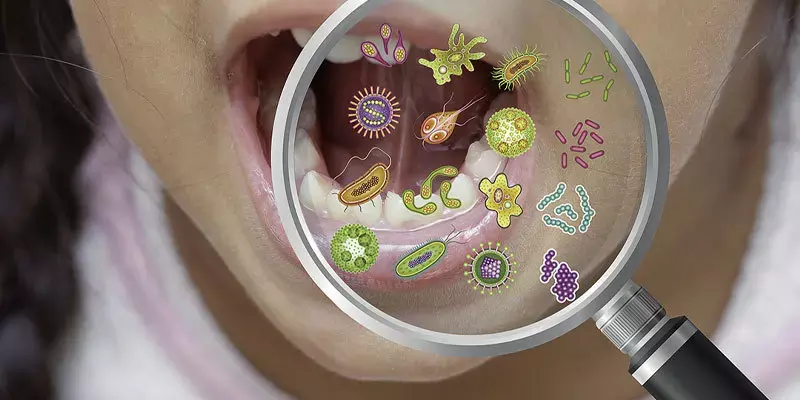- Home
- Medical news & Guidelines
- Anesthesiology
- Cardiology and CTVS
- Critical Care
- Dentistry
- Dermatology
- Diabetes and Endocrinology
- ENT
- Gastroenterology
- Medicine
- Nephrology
- Neurology
- Obstretics-Gynaecology
- Oncology
- Ophthalmology
- Orthopaedics
- Pediatrics-Neonatology
- Psychiatry
- Pulmonology
- Radiology
- Surgery
- Urology
- Laboratory Medicine
- Diet
- Nursing
- Paramedical
- Physiotherapy
- Health news
- Fact Check
- Bone Health Fact Check
- Brain Health Fact Check
- Cancer Related Fact Check
- Child Care Fact Check
- Dental and oral health fact check
- Diabetes and metabolic health fact check
- Diet and Nutrition Fact Check
- Eye and ENT Care Fact Check
- Fitness fact check
- Gut health fact check
- Heart health fact check
- Kidney health fact check
- Medical education fact check
- Men's health fact check
- Respiratory fact check
- Skin and hair care fact check
- Vaccine and Immunization fact check
- Women's health fact check
- AYUSH
- State News
- Andaman and Nicobar Islands
- Andhra Pradesh
- Arunachal Pradesh
- Assam
- Bihar
- Chandigarh
- Chattisgarh
- Dadra and Nagar Haveli
- Daman and Diu
- Delhi
- Goa
- Gujarat
- Haryana
- Himachal Pradesh
- Jammu & Kashmir
- Jharkhand
- Karnataka
- Kerala
- Ladakh
- Lakshadweep
- Madhya Pradesh
- Maharashtra
- Manipur
- Meghalaya
- Mizoram
- Nagaland
- Odisha
- Puducherry
- Punjab
- Rajasthan
- Sikkim
- Tamil Nadu
- Telangana
- Tripura
- Uttar Pradesh
- Uttrakhand
- West Bengal
- Medical Education
- Industry
Oral bacteria may be an under-recognised cause of brain abscesses

The oral cavity could be considered a source of occult infection in cases of brain abscess where no clear cause has been identified suggests a recent study published in the Journal of Dentistry.
Intracranial abscesses are relatively uncommon but can result in significant mortality and morbidity. Whilst many potential causes of brain abscesses are recognised, in many cases, the origin of infection remains clinically unidentified. Our objective was to investigate the role of bacteria found in the oral cavity in the development of brain abscesses.
Results
Brain abscesses from the ISI group (n=35) demonstrated a significantly lower preponderance of oral bacteria (n=8), than the NSI group (n=29) (p<0.05).
Brain abscesses from the NSI group also had significantly higher counts of Streptococcus Anginosus compared to ISI (p<0.05), with brain abscesses being most common in the frontal and parietal lobes for both ISI and NSI.
These findings suggest that the oral cavity could be considered as a source of occult infection in cases of brain abscess where no clear cause has been identified. Future studies should include oral screening and microbiome analysis to better understand the mechanisms involved and develop approaches for prevention. Oral bacteria may be an under-recognised cause of brain abscesses. Careful review of oral health in brain abscess patients may help establish causation, particularly in patients with no cause for their abscess identified. Good levels of oral health may help prevent the development of brain abscesses in some individuals.
Reference:
Holly Roy, Raul Bescos, Ewen McColl, Umar Rehman, Elizabeth Cray, Louise A. Belfield, King-David Nweze, Kevin Tsang, William Singleton, Peter Whitfield, Zoe Brookes. Oral microbes and the formation of cerebral abscesses: a single-centre retrospective study, Journal of Dentistry, 2022, 104366, ISSN 0300-5712, https://doi.org/10.1016/j.jdent.2022.104366.
(https://www.sciencedirect.com/science/article/pii/S0300571222004183)
Dr. Shravani Dali has completed her BDS from Pravara institute of medical sciences, loni. Following which she extensively worked in the healthcare sector for 2+ years. She has been actively involved in writing blogs in field of health and wellness. Currently she is pursuing her Masters of public health-health administration from Tata institute of social sciences. She can be contacted at editorial@medicaldialogues.in.
Dr Kamal Kant Kohli-MBBS, DTCD- a chest specialist with more than 30 years of practice and a flair for writing clinical articles, Dr Kamal Kant Kohli joined Medical Dialogues as a Chief Editor of Medical News. Besides writing articles, as an editor, he proofreads and verifies all the medical content published on Medical Dialogues including those coming from journals, studies,medical conferences,guidelines etc. Email: drkohli@medicaldialogues.in. Contact no. 011-43720751


